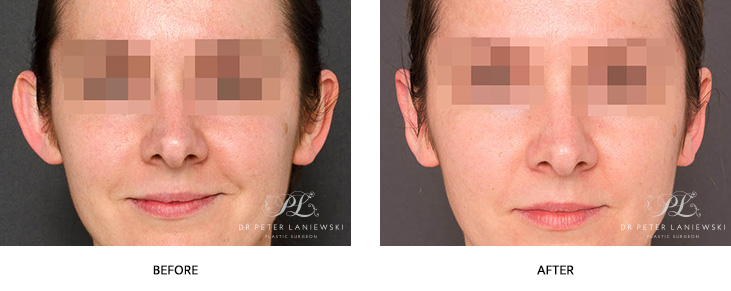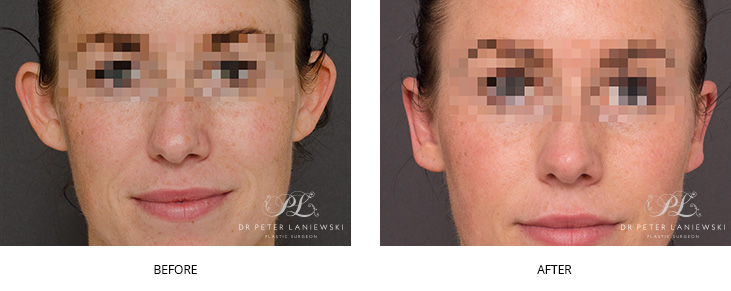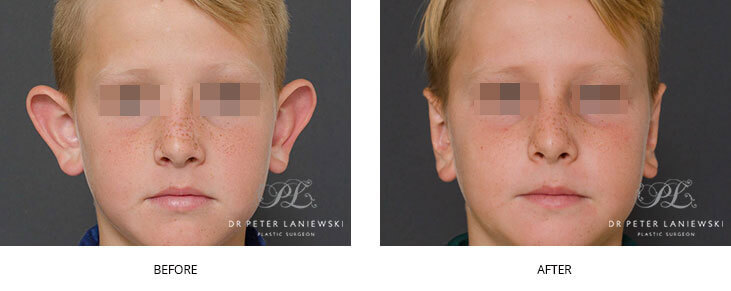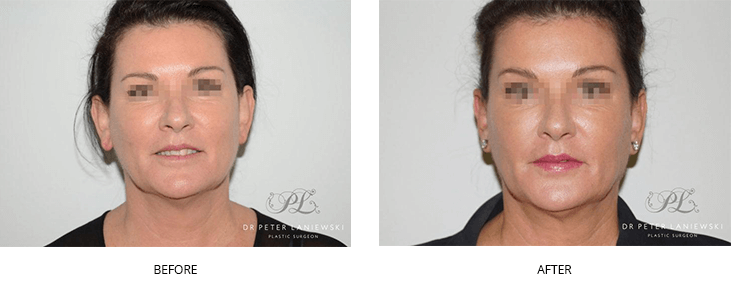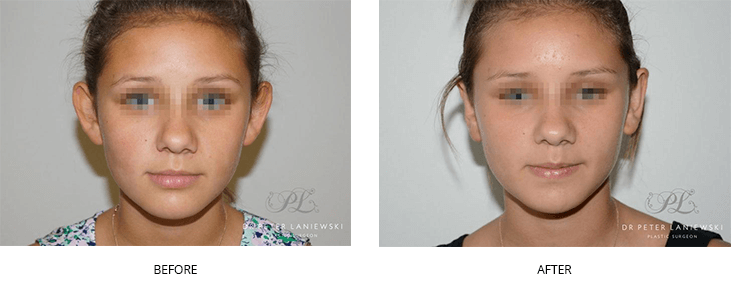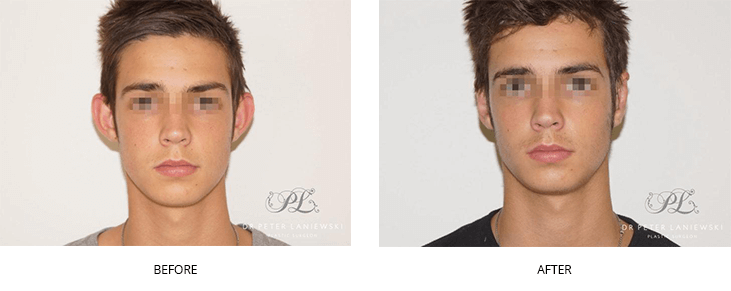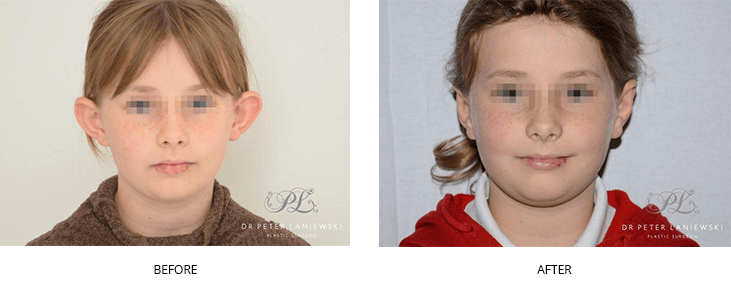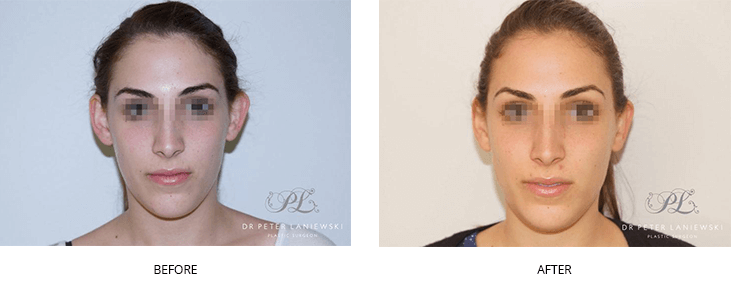Otoplasty Before and After
What is otoplasty surgery
Otoplasty surgery involves altering the appearance of the ears. There are many types of otoplasty, performed to meet the unique needs of the patient and their reasons for seeking surgery. Most commonly, it addresses aesthetic concerns such as the symmetry, size, shape, and position of the ears. This may include ears that are overly large, protruding, or otherwise misshapen.
Common reasons for undergoing otoplasty can include issues with the development of the ear in early childhood, damage to the ear caused by an injury, or simply aesthetic concerns.
Good candidates
If you are bothered by the asymmetry, shape, size or angle of your ears, cosmetic ear surgery may be right for you. To determine if you are a suitable candidate for the procedure, you will need to discuss your health history, lifestyle factors, and ideal results during your consultation. Dr Laniewski will assess your ears and develop a surgical plan to help you achieve the results you desire.
Generally, suitable candidates should be in good physical health and free of health risks that could interfere with the procedure. Patients should also hold realistic expectations as to what the procedure can achieve.
Cost of otoplasty surgery
Costs can often vary from patient to patient. Costs can depend on the type of procedure, the complexity of the procedure steps, anaesthesia fees, and other factors which may vary for each individual. Since the procedure is usually performed for cosmetic purposes, otoplasty is generally not covered by Medicare or private health coverage. The costs of ear correction surgery can be determined and discussed in detail during your consultation.
For more information on surgery costs, contact us today or fill out our online form.
Otoplasty aftercare
To guide you throughout your otoplasty recovery, Dr Laniewski will outline the essential steps to follow, as well as what you can expect as your body heals. Patients generally require about six weeks of recovery before resuming their daily routines.
After your ear correction surgery, you can experience swelling, tenderness, numbness, tingling, or redness. You will likely be instructed to wear a bandage or headband over your ears to assist with sufficient healing. Additionally, you may also be instructed to:
- Avoid putting pressure on your ears
- Sleep with your head slightly elevated
- Use a cold compress to soothe the swelling
- Take the medication prescribed by Dr Laniewski
- Avoid strenuous exercise
- Refrain from smoking and alcohol
- Get plenty of rest
Like with recovery from any type of procedure, we recommend that you eat healthy, stay hydrated and allow yourself plenty of rest to feel your best. Adhering to important recovery instructions can help you to achieve satisfying results aesthetically, as well as promote efficient healing and prevent potential complications.
Why choose Dr Peter Laniewski
Dr Laniewski is a skilled and experienced medical practitioner who is dedicated to helping patients achieve their aesthetic goals. A consultation with Dr Laniewski and his friendly team will help you to understand your treatment options, based on your individual concerns and desired outcomes. We will develop a bespoke treatment plan to help you look and feel your best, as well as answer any questions you may have about your chosen procedure. Book your consultation today to find out more about the great benefits of otoplasty surgery.
Frequently asked questions

